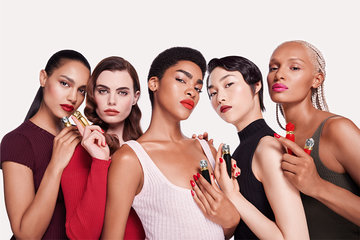
Day in and day out, you wear your hijab with pride, a symbol of your beliefs, a part of your take on modest wear. You can twist it, tuck it, let it loose, and choose all kinds of patterns and styles that go with your look. But when you get home, it’s time to also care for your hair! Not to worry, for we’re sharing our five hair care hacks that you can do right now to achieve healthy locks.
1. Wash Your Hair Correctly
First things first, we'll start off with the basics. Believe it or not, washing hair the same way isn't a "one hat fits all" approach. In fact, the secret to healthy hair is getting to know your hair type. For example, normal hair types may be washed at least once a week, while oily types need to be washed once a day. Dandruff is another reason to consider for daily wash, depending on the cause of your dandruff. Secondly, avoid applying too much pressure on your hair and scalp when washing. With your fingertips, just give a gentle, thorough massage around each lock of hair and the scalp. This will help reduce damage to your hair, keep it looking great, and help improve circulation.
2. Know Your Hair Type
So, we now know that when it comes to washing, the secret to healthy hair is getting to know your hair type, and this also applies to the hair products you use. Whenever you pop by your local stores, you’ll notice an array of shampoos and conditioners for dry hair, dyed hair, oily hair, frizzy hair, the list is endless. That's because each hair type – and there are many – requires a different approach to achieving healthy, beautiful locks. Not all products will yield the same results for all hair types, so get to know your hair type, see which products work best, and read labels to see what ingredients are a no-no for your locks. Some easy ones to look out for are sulfates and paraben.
3. Your Surroundings Matter
It may not seem like a primary concern to some but your environment can have an effect on your hair health, as it does your health in general. Occasionally, you will need to go outside to soak up some sun. Moderate exposure to the sun can stimulate production of Vitamin D, which is beneficial to our bones and teeth, immune system, skin and, of course, hair. Vitamin D deficiency may contribute to hair loss, so be sure to make your trip outdoors a routine. Just remember to keep it brief since a lengthy exposure to the sun could have adverse effects on the skin. Another thing to consider is the climate. Exposure to dry air may result in dehydration, so be sure to take measures to keep your hair moisturized.
4. Opt for Hair Oil
The human scalp is capable of producing vital oils that help moisturize the hair and the scalp. In addition, they can also help strengthen hair by replacing its lipids. If you have dry hair, it's essential to go for hair oil. There are various types and brands to choose from at your local store, but natural oils such as coconut and sesame are always a great choice. Just as with hair washing, gently apply your hair oil with a gentle massage around the scalp.
5. Choose the Right Hijab
Most importantly, we mustn't forget the hijab itself. Just like clothes, your hijabs are each made of different materials and not all of them suit all climates. This also matters to your hair.
A perfect symbiosis between athletics, comfort, and beauty.https://t.co/uPAWkjvOtm
— About Her (@AboutHerOFCL) September 25, 2020
For instance, your choice of headscarf could leave you hot, sweaty, oily, and prone to infections in warmer climates, so you will need to opt for a hijab that allows for air flow. In this case, choose a hijab that is made of breathable materials such as cotton, silk, or linen. For colder climates, you may choose to go for thicker materials instead.

















